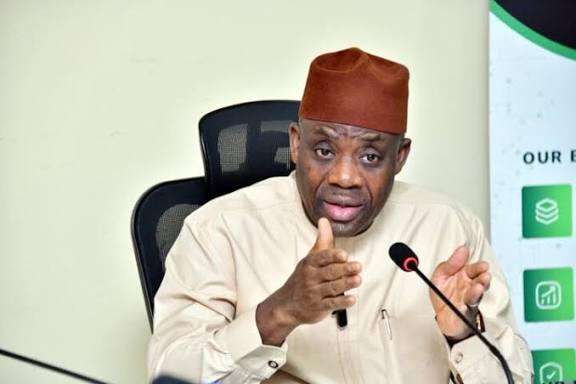
Samuel Omang
The Federal Government has threatened to invoke the no-work-no-pay policy against the Academic Staff Union of Universities (ASUU) following the union’s decision to embark on a two-week nationwide warning strike beginning Monday, October 13, 2025.
The President of ASUU, Professor Chris Piwuna, announced the industrial action during a press briefing at the University of Abuja on Sunday, explaining that the move followed the government’s failure to meet several long-standing demands.
According to Piwuna, the strike will be both “total and comprehensive,” affecting all federal and state universities across the country. He said ASUU’s patience had been exhausted after the expiration of a 14-day ultimatum earlier issued to the government without any meaningful response.
ASUU’s demands include the conclusion of the renegotiated 2009 FGN-ASUU Agreement, payment of withheld three-and-a-half months’ salaries, revitalisation funding for public universities, payment of outstanding salary and promotion arrears, and the release of withheld third-party deductions. The union is also calling for an end to the victimisation of its members in the Lagos State University (LASU), Federal University of Technology Owerri (FUTO), and Prince Abubakar Audu University.
In a swift reaction, the Federal Ministry of Education, through its spokesperson Folasade Boriowo, expressed disappointment over ASUU’s decision to proceed with the strike despite what it described as “sincere efforts” by the government to address the issues.
The statement read in part:
“Dialogue remains the most effective and sustainable path to resolving disagreements, and the government remains open to engagement at any level to prevent unnecessary disruption in the education sector. However, the no-work-no-pay policy remains an extant labour law of the Federal Republic of Nigeria, and the government will be guided by this law should academic activities be disrupted.”
The ministry reaffirmed that the welfare of university staff and stability of the academic calendar remain priorities under President Bola Ahmed Tinubu’s Renewed Hope Agenda. It urged the union to embrace dialogue rather than confrontation, assuring parents, students, and the general public of the government’s commitment to maintaining harmony in the tertiary education system.
ASUU, however, insists that the Federal Government’s appeal to shelve the strike came too late, maintaining that previous assurances had not been matched with concrete actions.
“We have shown enough understanding and patience,” Piwuna said. “For over three weeks, the government failed to meet or communicate with us. We will not suspend this strike until genuine progress is made.”
The ongoing standoff raises fresh concerns over the stability of Nigeria’s university system, with students and parents anxiously awaiting a quick resolution between the government and the academic union.
